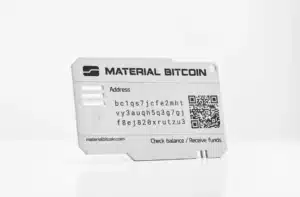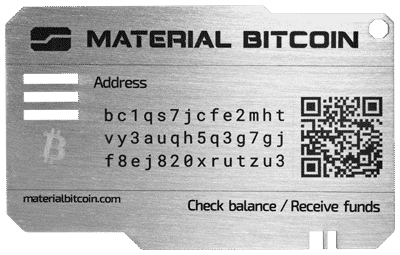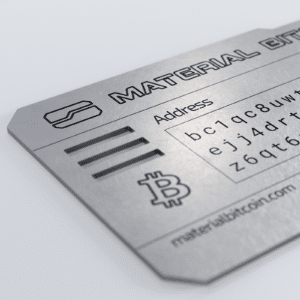As crypto evolves, so do new technologies. This is where AI-integrated smart crypto wallets come into play.
These wallets are slowly gaining popularity as they promise to give users a personalized experience, making them smarter, faster, and safer. But can they be trusted?
In this post, we will explore the key features of AI-integrated smart crypto wallets, their advantages, and disadvantages, and what the future holds for their evolution.
What is an AI-Integrated Smart Crypto Wallet?
An AI-integrated smart crypto wallet is a “new-generation” digital wallet that blends artificial intelligence (AI) with the security of blockchain technology.
These wallets have extra features apart from traditional crypto wallets of just storing, sending, and receiving cryptocurrencies. Rather, by using AI, they can monitor market trends, make predictions, automate transactions, and give users a personalized experience.
AI-Integrated Smart Wallets or Traditional Wallets?
Traditional crypto wallets, regardless of being hot, cold, or hardware, focus on storing your crypto.
But what AI-integrated wallets can do is essentially manage your crypto portfolio for you.
The use of AI in fintech is only gaining traction.
The global AI in the fintech market is predicted to grow to $74.9 billion by 2029 from $13.3 billion in 2024, with a compound annual growth rate (CAGR) OF 41.2%.
This is due to the growing demand for automation and ease in financial services and crypto is no different.

In the blockchain sector, we are seeing similar adoption of AI.
The global blockchain AI market size was estimated at $196.63 billion in 2023 and is projected to grow at a CAGR of 36.6% from 2024 to 2030.
This growth means that AI has a large potential to impact the blockchain’s abilities, especially when it comes to things like data management and personalized user experiences.

Key Features of AI-Integrated Crypto Wallets
There are some great advantages to using AI in the crypto space. Here are some features of AI-integrated crypto wallets:
➡️Analytics and Insights: An undeniable feature of AI is its ability to analyze and summarize analytics. It can analyze market data in real-time and process algorithms to understand current trends and predict future outcomes. It has the power to take current data, along with historical data, like Bitcoin monthly returns, and make suggestions on when to buy or sell crypto.
➡️Automated Crypto Management: With AI tools that are integrated into your crypto wallet, you can manage multiple assets on different platforms at once. Automating trades based on your predetermined criteria, balancing and rebalancing your portfolio, and even scheduling transactions. This allows you to interact with the blockchain more frequently and more efficiently.
AI Wallets VS Traditional Crypto Wallets?
Hot Wallets
Hot wallets, also known as software wallets, are popular for active traders and investors who need quick access to their crypto. However, since they are always connected to the internet, they are extremely vulnerable to cyber-attacks.
VERSUS
AI-integrated hot wallets take accessibility a step further by using algorithms to help you manage liquidity in real-time. When it comes to safety, AI-integrated wallets claim to have higher security since they can monitor your actions 24/7, notifying you if any suspicious activity is detected.
Cold Wallets
Cold wallets are the highest forms of crypto security since they store your private keys offline. All cold wallets are also considered hardware wallets, as they are on physical objects. However, be aware. Not all hardware wallets offer cold storage!
VERSUS
AI integration in storage will always require an internet connection. This means that an AI-integrated crypto wallet can never be considered cold storage. Yes, AI can provide some extra security steps, but its constant connectivity to the internet goes against the fundamentals of a cold wallet.
Hardware Wallets
Hardware wallets are a type of cold wallet that stores your private keys on a physical device. In a way, this blends the accessibility of hot storage with the security of self-custody.
VERSUS
The integration of AI in electronic hardware wallets can enhance both the security features and user experience. AI can make hardware wallets more intuitive by monitoring user behavior and adapting the interface to the user’s preferences.
| 👍 Advantages of AI-Powered Crypto Wallets | 👎 Disadvantages of AI-Integrated Crypto Wallets |
|---|---|
Additional Security Features
|
Complexity for Users
|
Personalization and Efficiency
|
Privacy Concerns
|
Predictive Insights and Automated Actions
|
Dependence on AI
|
Popular AI-Integrated Crypto Wallets
Understanding AI-integrated crypto wallets is one thing, but utilizing them is a completely different thing.
Traditionally speaking, AI wallets were something that needed to be created by advanced users who understood the function of the blockchain.
For example, using your desired blockchain like Ethereum or the Binance Smart Chain, you could develop smart contracts to interact with AI algorithms for tasks like automated trading, fraud detection, and safety protocols.
As artificial intelligence has gained popularity and acceptance, some new companies have come along offering AI crypto wallets.
Organizations like FluidAI and RasperAI provide customizable services for crypto storage using the ETH and BSC blockchains, along with their tokens.
The Future of AI in Smart Crypto Wallets
The future seems to only be pointing in one direction and that is to integrate AI into tech.
It is a useful tool as it can create predictive algorithms, make decisions, and analyze large amounts of data. As more people use it and companies adopt it into their products, it will only continue to improve user experiences to be more efficient.
Case Study
A great example of AI integration in crypto wallets is the partnership between Elliptic, a blockchain analytics firm, and Stellar, a decentralized blockchain.
Elliptic uses AI to monitor transactions on the Stellar network for potential fraud. It provides real-time risk scores that help users and institutions to reduce risks associated with crypto transactions.
In terms of regulation, AI has been brought up several times.
From control and development, AI integration could potentially see governments regulating its use in financial institutions, particularly regarding data protection, privacy, and security.
For example, the EU has strict data protection laws which are now under review in regards to AI. The General Data Protection Regulation (GDPR) and the integration of AI could hinder the adoption and use of crypto wallets in other sectors.
Another issue facing AI crypto wallets is the average crypto investors.
Many remain skeptical, especially when it comes to the long-term holding of their crypto.
Although it can offer many benefits, it still relies on constant connectivity and another thinking form that has control over your assets.
Ultimate Control and Security
For the best in self-custody and control of your crypto, using cold storage like Material Bitcoin is your best option.
There are no fancy bells or whistles, nor do you have the added features of AI, but you are left with security and full protection of your crypto.

Your Takeaway on AI-Integrated Crypto Wallets
AI integration is quickly transforming the way we manage digital assets.
By introducing advanced AI to blockchain technology, these wallets offer enhanced personalized experiences and automated financial management.
While the future is still unclear in regards to self-custody and regulations, there are some great benefits for those who want to integrate new technologies into their investing strategy.
Just remember, it’s best to keep large amounts in cold hardware wallets. Otherwise, enjoy the benefits of AI as it helps make digital finance more efficient.










0 Comments